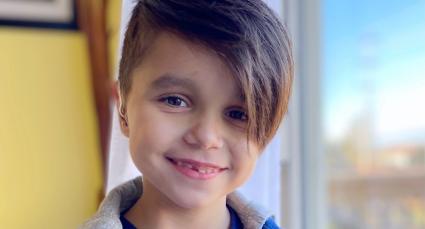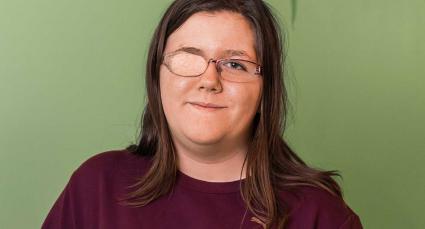Ruby Clory, 15, from Prince Edward Island, had just finished school for the summer and was ready to start a new summer job when her health suddenly began to decline.
It was July 2023 when Ruby began to feel sick. She started to have chills and then developed a severe headache and sore legs over a few days.
Initially, Ruby’s parents, Alisha and Jeremy, weren’t overly concerned because Ruby is a competitive dancer who, at the time, was working with a Toronto choreographer to prepare for a dance competition. The family had also just moved into a new home.
But little did they know Ruby was experiencing a health crisis.
More days had passed, and Ruby began to feel much worse. She was having debilitating back and neck pain, difficulty walking and trouble sleeping. Her parents became very worried and took her to their local hospital’s Emergency Department.
At first, they thought Ruby was suffering from mechanical back pain or a migraine because of her intense dance routines and starting a new job. But when the treatments they provided did not work, and Ruby’s health was not improving, her parents took her to their family doctor.
At this point, Ruby could not walk. Her father had to carry her into the doctor’s office. She was in so much pain that she couldn’t sit in a chair and had to lay on the floor instead.
Ruby’s family doctor performed a complete examination, including a neurological assessment. As a result, she discovered that something was wrong with Ruby’s nervous system. She immediately sent Ruby to their local hospital for an MRI and spinal tap (a diagnostic procedure that removes cerebrospinal fluid from the spine).
The results from both tests helped determine that Ruby had Guillain-Barré syndrome (GBS), a rare and serious condition that affects the nerves. The damage to the nerves causes muscle weakness and sometimes paralysis. As a result, Ruby needed to be transported by ambulance to the IWK, where she’d receive the highest level of care to treat her condition and help her recover.
Unfortunately, there is no cure for GBS, but treatments can help speed recovery and reduce the severity of the illness. One such treatment is immunoglobulin, a blood product that helps to decrease the immune system’s attack on the nervous system.
Ruby received three immunoglobulin treatments—one at her local hospital, one en route to the IWK and her final one at the IWK.
At the IWK, Ruby was admitted to the IWK’s Pediatric Medical Unit (PMU), where her long and challenging road to recovery would begin.
The impact that GBS had on Ruby’s body was severe. She was not able to walk, move her arms, talk, eat or breathe very well. She was very weak and in a lot of pain.
Because Ruby was having difficulty breathing and eating, she was moved to the IWK’s Pediatric Intensive Care Unit (PICU) to be intubated and hooked up to a ventilator, as well as have a feeding tube inserted. After spending five days in the PICU, she was moved back to PMU for two weeks before being transferred to the IWK’s Medical, Surgical, and Neurosciences Unit (MSNU), where she worked with many care specialists, including physiotherapists, speech pathologists, and neurologists that aided in her recovery.
Ruby spent an entire month at the IWK before she was finally well enough to return home in late August 2023. Although she was back home, she was still dealing with some side effects caused by GBS. Ruby’s energy levels were not yet fully restored, and the muscles in her face were still paralyzed. Ruby continued to rely on a feeding pump to deliver her nutrition until she could safely eat solid foods again. She returned to school in January 2024 and is very thankful for the care the IWK provided her and her family.
“I want more people to know about the IWK and how special it is there,” says Ruby.



